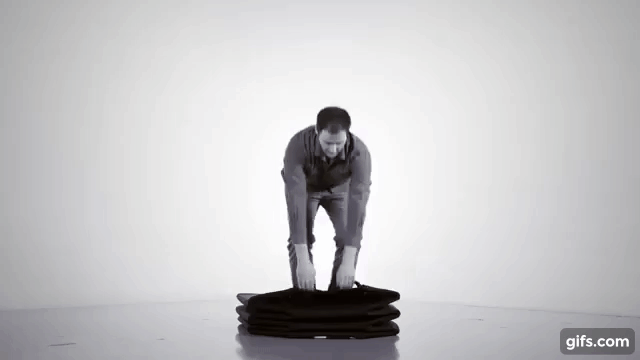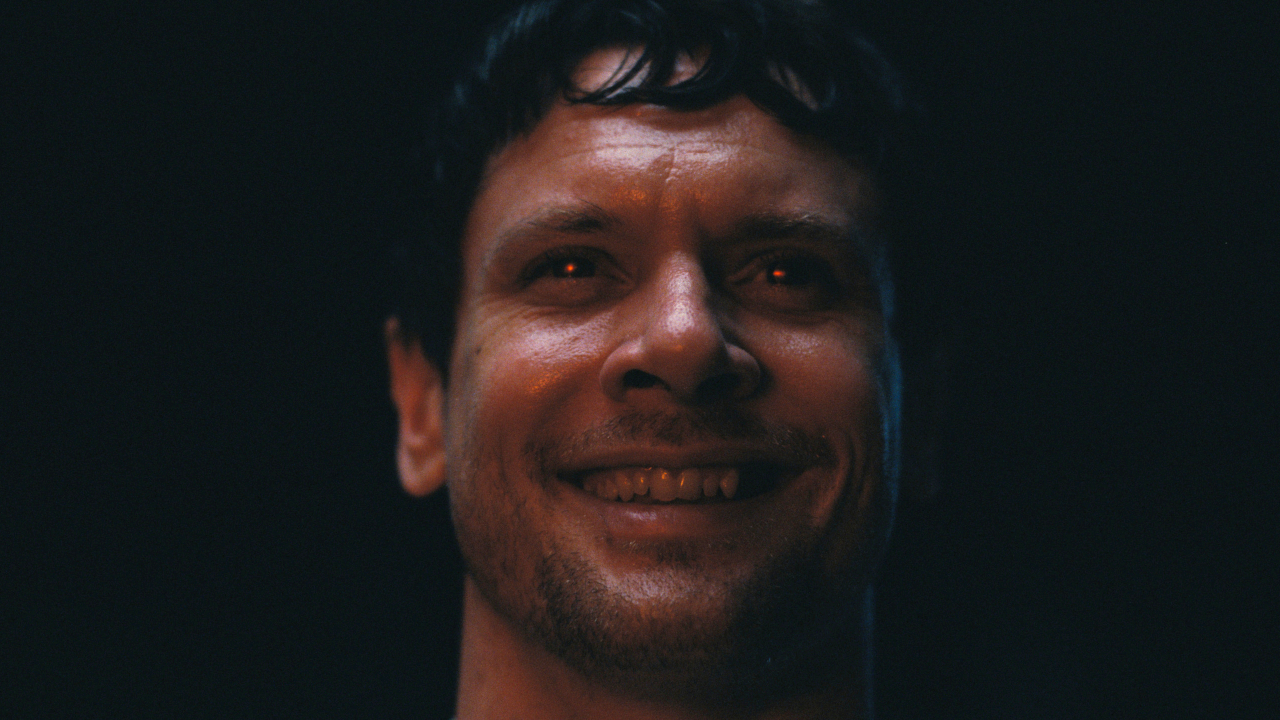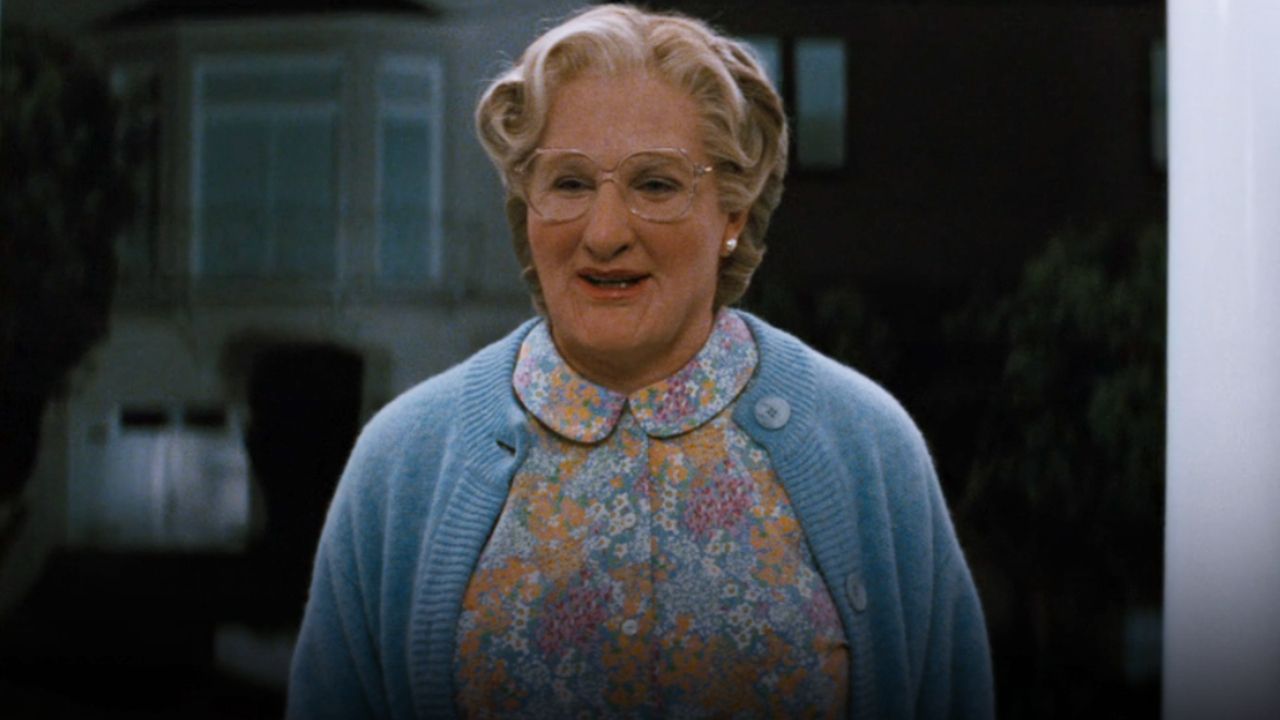The Last Stop in Yuma County
"Last Stop in Yuma County" is the kind of movie where you root for the worst to happen, because every escalation of misfortune makes things more entertaining. Written and directed by Francis Galluppi, "Yuma" is a period piece that makes the most of a small budget. It's set in the Arizona desert, roughly fifty years ago. Much of the action occurs in and around a diner and its adjacent gas station. The owner, a lumbering but sweet-souled man named Vernon (Faizon Love), tells travelers that the next station is four hours away, so it behooves them to fill up while they can. But the pumps are empty, and the fuel truck is behind schedule, so anyone who doesn't have enough gas in the tank to keep going must sit in the diner and wait. The central air isn't working. The place is a hotbox. Tempers tend to flare in a place like this. Our entry into the story is a knife salesman, listed in the credits simply as The Knife Salesman (Jim Cummings). He seems anxious and depressed before he's even opened his mouth. He wants to get to Calabasas, California, to visit his daughter, who is living with her mom and mom's second husband. His waitress is Charlotte (Jocelin Donahue), a smart, sweet lady who keeps urging patrons to try the rhubarb pie. Charlotte is married to Sheriff Charlie (Michael Abbott Jr.), who dropped her off at work that morning. The Knife Salesman and Charlotte bond immediately, but their conversation is interrupted by the arrival of two more customers, Travis and Beau (Richard Brake and Nicolas Logan), perpetrators of a bank robbery that's all over the news. They're surly and menacing. They stare. Sometimes they glower. Travis is smug and cold and has an insinuating, at times invasive way of speaking. Beau is an impulsive meathead who chain-smokes and wipes his armpits with napkins. Eventually, somebody's going to identify these two. As "Yuma" goes along, it adds more characters and ... what's the word I'm looking for here? Not levels. The movie stays at one level (thumbscrew-tightening comedy-thriller), and that's fine because few American films know how to operate that way, and it's a treat to see one that does. Maybe "trajectories" is the word. All these characters are going somewhere, if only in their minds. Their pit stop at the diner interrupts their momentum, then traps them in a limbo that becomes a purgatory and ultimately a hell on earth. (The movie could've been titled "The Fuelman Cometh.") There's an old married couple with a wife (Robin Bartlett) who knits and a husband (Gene Jones) who shoehorns his way into other diners' mental space when he isn't snoring at the table. Miles (Ryan Masson) and Sybil (Sierra McCormick), younger criminals who fancy themselves the next Bonnie and Clyde, end up in the diner as well. Everyone in the place has a weapon of some kind. This is not the kind of movie that will end with hugging. Galluppi, who also edited, has clearly studied the collected works of the Coen Bros and Sam Raimi and absorbed a lot (including a repertory company member: Gene Jones was in "No Country for Old Men"). After seeing "Yuma County," you'll understand how Galluppi went immediately from this, his feature debut, to writing and directing an "Evil Dead" movie based on an original idea he pitched to Raimi. "Yuma County" is descended from the 1980s and '90s gritty American crime flick subgenre that included the Coens' "Blood Simple" and "Fargo" and Raimi's "The Gift" and "A Simple Plan"—movies that made you laugh, then cut the laughter short with spectacular violence, then made you laugh again by having the characters continue to be their worst selves even as they bled out. ("Are we square?" Steve Buscemi's kidnapper grimace-growls in "Fargo," holding a blood-soaked rag against the gunshot wound in his face.) Good as it is, you might wish the movie were better, or there was a bit more to it, all the way up to the last act. For an instant, it seems as if the movie has crested prematurely or run out of ideas when there are another 30 minutes to go. Then it takes a left turn into the kind of gloriously desperate black-hearted comedy that defines a cult classic. Cummings is at the center of this final act, and he's the perfect anchor: he brings a tamped-down variant of the hyper-verbal weasel persona he displayed in 2021’s "The Beta Test," a black comedy about a morally vacuous Hollywood agent who suffered greatly for his numerous sins but was too arrogant to learn and grow. Cummings is conventionally handsome in a way that would have been standard-issue Anglo suburbanite in the 1950s but seems unreal and unnerving today. It's a face from an ad for black-and-white televisions. His very existence is satirical. But Cummings is more than an Eisenhower-era sight gag. You've never seen anything quite like the energy he puts out when playing characters who've been hoisted by their own petards but deny that any hoisting occurred. He's in peak form here. When the character is so unhinged that Cu


"Last Stop in Yuma County" is the kind of movie where you root for the worst to happen, because every escalation of misfortune makes things more entertaining.
Written and directed by Francis Galluppi, "Yuma" is a period piece that makes the most of a small budget. It's set in the Arizona desert, roughly fifty years ago. Much of the action occurs in and around a diner and its adjacent gas station. The owner, a lumbering but sweet-souled man named Vernon (Faizon Love), tells travelers that the next station is four hours away, so it behooves them to fill up while they can. But the pumps are empty, and the fuel truck is behind schedule, so anyone who doesn't have enough gas in the tank to keep going must sit in the diner and wait. The central air isn't working. The place is a hotbox. Tempers tend to flare in a place like this.
Our entry into the story is a knife salesman, listed in the credits simply as The Knife Salesman (Jim Cummings). He seems anxious and depressed before he's even opened his mouth. He wants to get to Calabasas, California, to visit his daughter, who is living with her mom and mom's second husband. His waitress is Charlotte (Jocelin Donahue), a smart, sweet lady who keeps urging patrons to try the rhubarb pie. Charlotte is married to Sheriff Charlie (Michael Abbott Jr.), who dropped her off at work that morning.
The Knife Salesman and Charlotte bond immediately, but their conversation is interrupted by the arrival of two more customers, Travis and Beau (Richard Brake and Nicolas Logan), perpetrators of a bank robbery that's all over the news. They're surly and menacing. They stare. Sometimes they glower. Travis is smug and cold and has an insinuating, at times invasive way of speaking. Beau is an impulsive meathead who chain-smokes and wipes his armpits with napkins. Eventually, somebody's going to identify these two.
As "Yuma" goes along, it adds more characters and ... what's the word I'm looking for here? Not levels. The movie stays at one level (thumbscrew-tightening comedy-thriller), and that's fine because few American films know how to operate that way, and it's a treat to see one that does. Maybe "trajectories" is the word. All these characters are going somewhere, if only in their minds. Their pit stop at the diner interrupts their momentum, then traps them in a limbo that becomes a purgatory and ultimately a hell on earth. (The movie could've been titled "The Fuelman Cometh.")
There's an old married couple with a wife (Robin Bartlett) who knits and a husband (Gene Jones) who shoehorns his way into other diners' mental space when he isn't snoring at the table. Miles (Ryan Masson) and Sybil (Sierra McCormick), younger criminals who fancy themselves the next Bonnie and Clyde, end up in the diner as well. Everyone in the place has a weapon of some kind. This is not the kind of movie that will end with hugging.
Galluppi, who also edited, has clearly studied the collected works of the Coen Bros and Sam Raimi and absorbed a lot (including a repertory company member: Gene Jones was in "No Country for Old Men"). After seeing "Yuma County," you'll understand how Galluppi went immediately from this, his feature debut, to writing and directing an "Evil Dead" movie based on an original idea he pitched to Raimi.
"Yuma County" is descended from the 1980s and '90s gritty American crime flick subgenre that included the Coens' "Blood Simple" and "Fargo" and Raimi's "The Gift" and "A Simple Plan"—movies that made you laugh, then cut the laughter short with spectacular violence, then made you laugh again by having the characters continue to be their worst selves even as they bled out. ("Are we square?" Steve Buscemi's kidnapper grimace-growls in "Fargo," holding a blood-soaked rag against the gunshot wound in his face.)
Good as it is, you might wish the movie were better, or there was a bit more to it, all the way up to the last act. For an instant, it seems as if the movie has crested prematurely or run out of ideas when there are another 30 minutes to go. Then it takes a left turn into the kind of gloriously desperate black-hearted comedy that defines a cult classic. Cummings is at the center of this final act, and he's the perfect anchor: he brings a tamped-down variant of the hyper-verbal weasel persona he displayed in 2021’s "The Beta Test," a black comedy about a morally vacuous Hollywood agent who suffered greatly for his numerous sins but was too arrogant to learn and grow. Cummings is conventionally handsome in a way that would have been standard-issue Anglo suburbanite in the 1950s but seems unreal and unnerving today. It's a face from an ad for black-and-white televisions. His very existence is satirical.
But Cummings is more than an Eisenhower-era sight gag. You've never seen anything quite like the energy he puts out when playing characters who've been hoisted by their own petards but deny that any hoisting occurred. He's in peak form here. When the character is so unhinged that Cummings is flailing and stumbling and stammering and panic-whining, it's like seeing Kermit the Frog in a film noir.




















